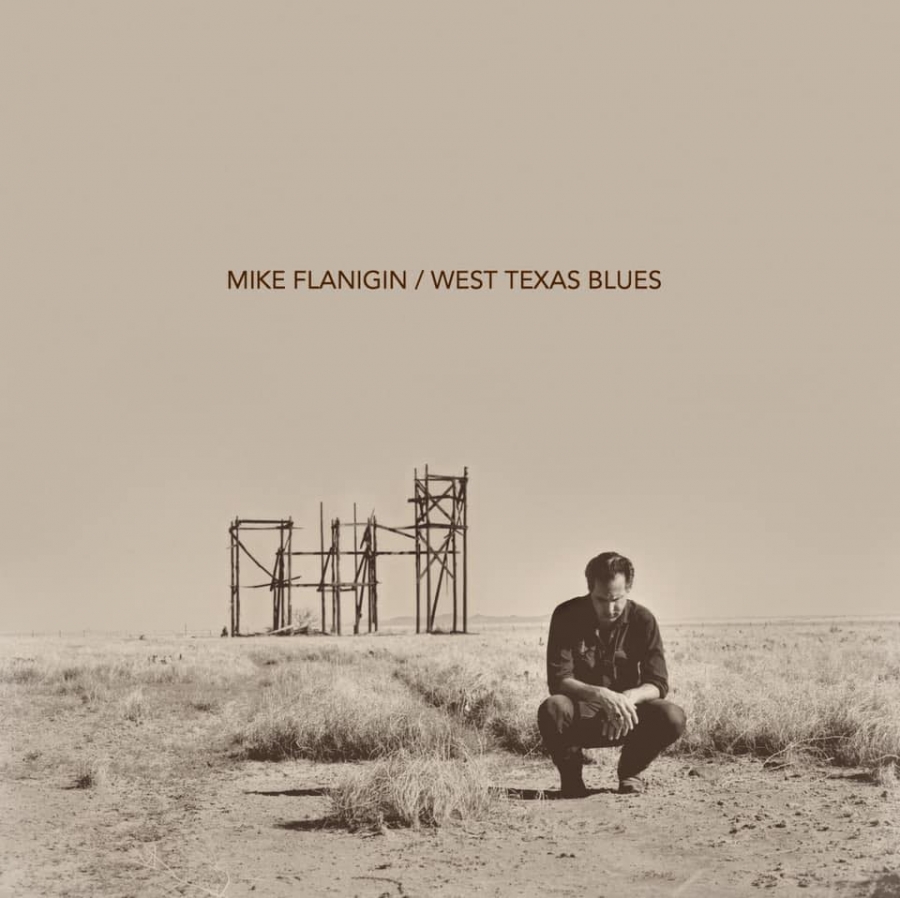West Texas Blues is a live studio album born out of organist, Mike Flanigin, and guitarist Sue Foley’s Texas Blues Party. Streamed live on Facebook, the hour-long program focused on regional history and included interviews with blues legends C.C. Adcock, Angela Strehli and Derek O’Brien.
“That’s almost what jump started the album in a sense.” Flanigin said. “We were just hesitant to do any sort of live stream thing, but we got so bored that we decided to do it, and our angle on it was we wanted to have a theme for the show.”
West Texas Blues was recorded in a four-hour session at Fire Station Studios in San Marcos with Chris Layton on drums and engineer Chris Bell, who worked with Foley on The Ice Queen and Flanigin’s debut The Drifter.
Mike Flanigin and Sue Foley’s West Texas Blues
“As much as I labored over The Drifter album, which took me three years to make, and I had a lot of different types of genres, and people, and guests, this was the exact opposite.” Flanigin said. “This was ‘Let’s go in and let’s do what we do,’ and we play the blues. That’s what we’ve been doing our whole lives.”
The gritty-slow title track on the album by Lightnin’ Hopkins delivers a solid example of the phrasing that gives Austin blues guitar its sound.
“I just love the imagery of it,” Flanigin said, “because when you go to West Texas it’s so vast and the sound of that song is just like that.”
For the past four months, pulling open the red-and-white striped doors at C-Boy’s Heart and Soul on a Saturday night has felt like a distant memory. Flanigin’s crowded weekly residency with Jimmie Vaughan in the shadows of the tallest Capitol in the nation has been on indefinite hiatus as Coronavirus mandates leave night clubs in limbo.
“To me the C-Boy’s gig was kind of our equivalent in Austin to Preservation Hall Jazz Band in New Orleans,” Flanigin said. “Tourists would go, and if you wanted to kind of know what the early styles were of New Orleans music you would go see Preservation.”
Flanigan traces the Austin style back to Bill Campbell, and to the opening of Antone’s as a home for blues artists. Jimmie Vaughan performed nightly with the Fabulous Thunderbirds alongside Muddy Waters, Eddie Taylor, Hubert Sumlin and Lazy Lester at the club. As Vaughan built upon his experiences, local guitarists followed suit and created a unique style for the region that’s played around the world today.
“Jimmie is ground zero for the Austin sound,” Flanigin said. “His phrasing and what he did was copied by everybody who saw it. That was the template.”
When Foley arrived in 1990 from Vancouver, Canada, she immediately performed on stage with Albert Collins, and recorded her debut album Young Girl Blues for the Antone’s label. Foley later worked with Derek O’Brien on Lazy Lester’s All Over You, which features the song “If You Think I’ve Lost You.” An updated version shines on West Texas Blues, twenty-two years after the release of Lester’s album. Foley’s melodic solo captures the essence of the county, blues and Cajun melting pot that inspired Lester’s sound.
“He was hugely influenced by country music,” Flanigin said. “I sat with Lazy Lester in the Antone’s office on Guadalupe and he sat with an acoustic guitar and played every hardcore country blues song you could ever imagine… George Jones, Merle Haggard, he loved all that. When you listen to his blues songs, they’re like country songs. The words tell a story.”
Flanigan was touring with Jimmie Vaughan and Buddy Guy as the Coronavirus outbreak shut down the nation. The outlook is especially uncertain in the blues community, as the few living legends that created the genre will have to take additional precautions when venues re-open.
“I wonder in my mind, ‘Are some of these people going to retire and never come back?’” Flanigin said. “We might get a vaccine tomorrow. We all may be back in two months and all this may sound ridiculous, but these thoughts do cross my mind.”
West Texas Blues focuses on material from Juke Boy Bonner, The Nightcaps, Guitar Gable and others to preserve the history of the Texas sound.
“I want people to know there is a real history to Ausin blues, and it’s complicated, and it’s a rich history, and it’s a wonderful history,” Flanigin said. “Everything we do, everything we’ve ever done, has been a celebration in honoring these people.”
-Andrew Blanton
